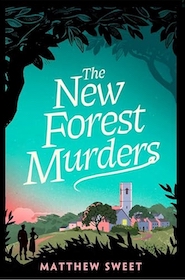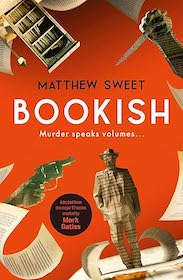 35 years ago, I found myself standing in the Upper Reading Room of the Bodleian with a knife in my hand. It was a moment that changed my life. The librarian gave me the blade. She told me to do it; told me, when she saw my worried expression, there would be no consequences for my actions.
35 years ago, I found myself standing in the Upper Reading Room of the Bodleian with a knife in my hand. It was a moment that changed my life. The librarian gave me the blade. She told me to do it; told me, when she saw my worried expression, there would be no consequences for my actions.
In I went. Slash, slash, slash. And the uncut pages of the Bodleian’s copy of Basil, by Wilkie Collins (1852, two volumes, Richard Bentley and Co.), were exposed to the light for the first time in over a century.
There were consequences, however. I became obsessed with Collins. His weak and culpable characters, his compromised heroes, his fearless heroines, his villains. (The villains were particularly delicious: one liked eating bonbons and rolling his own cigarettes; one dyed her hair red and favoured poisoned lemonade; another kept a monkey inside his coat.)
So I spent several years researching a DPhil thesis on his fiction. At that time, academic work on him was scarce. An older critical consensus had decided that he was a detective novelist. T. S. Eliot called The Moonstone (1868) “the first, the longest, and the best of modern English detective novels in a genre invented by Collins and not by Poe.” Dorothy L. Sayers described the same book as “probably the very finest detective story ever written.” I never thought of him that way: I saw him as a novelist who wrote about secret desires and how they are always discovered. (And not, in the case of The Moonstone, by the detective in the story.)
The New Forest Murders turns on secrets and the strategies used to keep them. But it also seems to have gathered up all my other preoccupations and obsessions. It’s about the hunt for a spy, and I’ve met a few of those. Enough to tell you that if you have lunch with one, they usually wait for you to choose and follow you through the menu from soup to nuts. I found this to be true of the Swedish intelligence operative I met in Malmö for pasta and grappa (Gunnar Ekberg, a harpoon-fishing champion who infiltrated student Maoist groups in the 1960s, and knew old-school tricks like getting the impression of a key in a bar of soap) and of the CIA officer with whom I shared fish and chips and sauvignon blanc in Wilmington, North Carolina (Frank Rafalko, who surveilled the Black Panthers in the 1970s.)
The period setting is another giveaway. It’s set in the 1940s, which almost feels like my second home. My non-fiction has often sent me there: there was a time when my diary was full of afternoon tea appointments with Gainsborough actresses and Windmill girls and MI5 secretaries.
They’re all gone now. There’s nobody left like Marie-Jaqueline [SIC] Hope-Nicholson, who told me about the time she danced at the Gargoyle Club in Soho and Dylan Thomas licked the gravy browning off her legs. Or Joyce Stone, who remembered how her husband, the band leader Lew Stone, made the Luftwaffe part of his band.
“Incendiaries normally came down in sticks of seven or eight,” she told me. “But Lew worked out something to stop everyone from panicking.” After the second blast, he had the band strike up the first bars of the Anvil Chorus from Il Trovatore. The musicians played every other note, timing the gaps to allow the detonating bombs to complete Verdi’s line. “It happened so often”, Joyce recalled, “that they became very good at it.” And, banging the arm of her chair with her hand, she demonstrated.
Perhaps the disappearance of these witnesses, and the impulse to keep the conversation going, is the reason why that moment in history exerts such a powerful attraction. It always seems to be drawing me back.
Bookish, the imminent TV drama I’ve co-written with Mark Gatiss, is about an antiquarian book dealer who solves murders in Attlee’s Britain. Its action begins in early 1946. The war remains a shadow over the lives of its characters.
About eighteenth months previously, in the entirely compatible world of The New Forest Murders, the end of the war seems close at hand. Paris has been liberated. The German Army is in retreat. But in the village of Larkwhistle, there is grave news to share. The body of a young man is the is being returned home from the field of war. But his is not the only death to mourn. The bloodied corpse of a boy has been discovered at the foot of a venerable old tree.
The mysteries of these deaths will be solved together, by two young people on a mission even more consequential than the exposure of a murderer. The fate of the country depends on it. Secrets must be brought into the light. A murderer must be identified. A spy unmasked.
No paper knives will be necessary.
The New Forest Murders

Publisher: Simon & Schuster UK (June 5, 2025)
ISBN13: 9781398530874
https://www.simonandschuster.co.uk/books/The-New-Forest-Murders/Matthew-Sweet/9781398530874
Bookish
Quercus, 10 July 2025 Hbk £20

Photo Matthew Sweet © Mike Stotter 2025